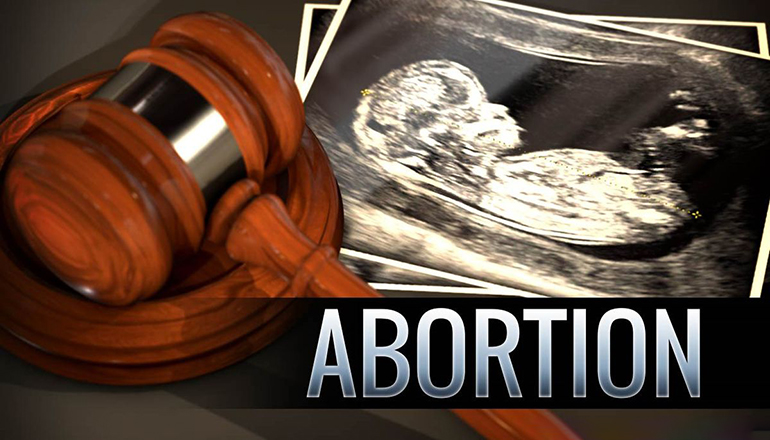(Missouri Independent) – A third attempt to get a bill that funds one-quarter of Missouri’s Medicaid program through the state Senate failed Tuesday night when a new anti-abortion issue was injected into the legislation.
Sen. Dan Hegeman, R-Cosby, brought the bill that has been in limbo since late March to the floor just a few hours after telling The Independent that he had a deal with Sen. Paul Wieland, R-Imperial, on how to write restrictions on some contraceptive medications and devices into the bill.
And on the floor Tuesday night, Hegeman and Wieland were friendly and seemed happy with the result. The new issue – whether Planned Parenthood will be allowed to be a provider of Medicaid-funded family planning services – was brought up by Sen. Bob Onder, R-Lake St. Louis.
The bill was set aside with Onder’s amendment, which added the prohibition on Planned Parenthood and undid part of the compromise, pending.
Last June the Missouri Supreme Court ruled that lawmakers could not use appropriation bills to bar Planned Parenthood from being a Medicaid provider just because some of its clinics offer abortions.
That decision became the target of Onder’s proposal.
“In a raw and unprecedented act of judicial activism, the Missouri Supreme Court said you can’t make policy in the budget,” Onder said of the decision that cited precedents dating to 1926. “Since the geniuses over at the Missouri Supreme Court have decided we cannot defund Planned Parenthood in our budget, we need to defund Planned Parenthood in our statutes.”
When Wieland first brought abortion into the debate with an amendment in March, he wanted to block the state Medicaid program from paying for any FDA-approved medication or device that would cause “destruction of, or prevent the implantation of” a fertilized ovum.
Hegeman set the bill aside at that time over concerns the restriction violated federal law requiring the state to provide the essential health benefit that private insurance plans must provide.
Under the deal struck by Wieland and Hegeman, the amendment stayed on the bill but a section was added to make the provision invalid if it was found to put the state out of compliance.
“I think we have reached a consensus on a way to move forward on this,” Hegeman said on the Senate floor Tuesday evening.
Wieland seemed pleased as well. He did not object to the extra language, he said.
“I don’t have a problem with that,” Wieland said. “I think it is a good compromise.”
The bill is must-pass legislation because of its enormous impact on the state Medicaid program.
The bill extends the expiration date for taxes called the federal reimbursement allowance imposed on hospitals, pharmacies, nursing homes, and ambulance services. The taxes lessen the program’s burdens on general revenue and allow the state to pay higher rates to providers than it could otherwise.
The providers accept the taxes because the state can draw $1.80 or more in federal funds for every $1 generated by the taxes.
Provider taxes are expected to generate $3 billion for Medicaid in the coming fiscal year.
Gov. Mike Parson’s budget for the coming fiscal year pegged the cost of Medicaid at $14.1 billion, including $2.7 billion of general revenue. That amount includes about $1.9 billion to pay for expanded Medicaid coverage for working-age adults.
The only deadline for passing the renewal legislation is May 14, when lawmakers adjourn their annual session. But in years when the tax is being extended, the target date is usually the same as the deadline for passing the budget, which this year is May 7.
“I would love to get the FRA done,” Hegeman said Tuesday afternoon after saying he had a deal with Wieland.
For several years, the taxes have been renewed annually. In the version he offered Tuesday night, Hegeman put it on a two-year cycle.
Asked by Onder why he did so, Hegman noted that he would be gone due to term limits by then.
“I would be happy not to have to deal with that again,” Hegeman said.
When Onder questioned him about the compromise, Wieland said his research showed that his amendment could put the state out of compliance with federal law because of provisions in the Affordable Care Act.
That law requires states that expand Medicaid eligibility under the act must include coverage of all FDA-approved medications, Wieland said.
His amendment would prohibit products including levonorgestrel, commonly called the “morning-after” pill, and some intrauterine devices, or IUDs.
Levonorgestrel can prevent fertilization if used soon after intercourse. IUDs are designed to prevent fertilization as well either through spermicidal action or hormonal treatments.
Both types of contraception also prevent implantation if fertilization occurs.
Federal law already bars the use of federal Medicaid funds to pay for abortions and Missouri law mirrors that limitation.
If Missouri is out of compliance, Wieland said, there will be a lengthy period of appeal, as well as possible court action, before the state would lose any money.
“That amendment is not going to disrupt any Medicaid funding at all,” Wieland said. “There is not that jeopardy that the world is going to end.”







